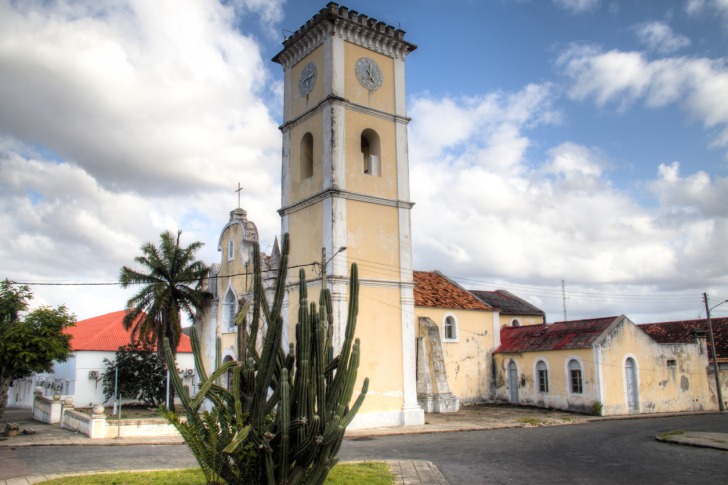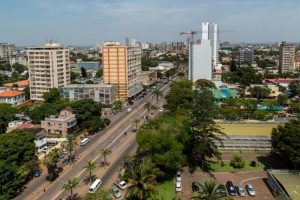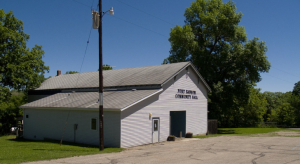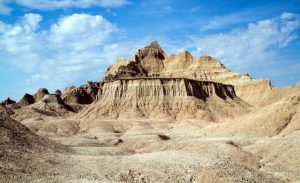 Mozambique : Safety by City
Mozambique : Safety by City
Mozambique - safety as a country Visiting Inhambane offers travelers a unique experience, but it’s important to enact precautions and measures to remain safe.
As one of the oldest cities on the country’s eastern coast, traders visited the area in the 11th century.
Inhambane boasts the perfect mix of beautiful coastline and historic sites.
With a population of just under 80,000, Inhambane is around 310 miles From Maputo, the capital.
This settlement owes most of its existence to a deep inlet where the Mutamba River flows.
The sandy headlands form a large sandbank, which has protected the harbor for centuries.
Across the bay is the Maxixe, Inhambane’s sister town.
For those interested in visiting Inhambane, it’s important to understand the warnings and dangers, safest places to visit, areas to avoid, safety tips, and other useful information.
Keep reading to learn more!
Warnings & Dangers in Inhambane

OVERALL RISK: MEDIUM
Although the risk in Inhambane is medium, there’s plenty to watch out for, including taxi and police scams, natural disasters, petty crime, and muggings. On the other hand, if you use common sense, many of these incidents can be avoided.

TRANSPORT & TAXIS RISK: MEDIUM
Inhambane’s public transportation is regularly used by tourists and locals. Although the transit options are safe during the day, always exercise caution at night, especially if traveling alone. Chapas (minibuses) and buses are typically overcrowded, incredibly hot, and uncomfortable over long distances. When riding on crowded buses, be aware of your surroundings, remain alert, and be vigilant for pickpockets. Taxis are available but will overcharge if you don’t negotiate the fare before entering the car.

PICKPOCKETS RISK: MEDIUM
Pickpocketing and bag snatching are the biggest criminal offenses you could experience when visiting Inhambane, so it’s critical to avoid displaying valuable items in public, secure all personal belongings, and remain alert at all times. Also, keep your wallet in your front pocket and your handbag at the front of your body while in crowded areas.

NATURAL DISASTERS RISK: HIGH
Given that Mozambique has the third highest risk of all African countries for natural disasters, this is a concerning point. In the past 35 years, the country has been hit by 13 droughts, 14 cyclones, and 25 floods, all of which were disastrous. Since Inhambane is a coastal city, the greatest natural disaster risks are cyclones and flooding, especially during the rainy season. Epidemics are another major concern due to poor healthcare resources, with 23 occurring in 30 years.

MUGGING RISK: MEDIUM
Inhambane does not have as high of a risk of violent crimes like mugging, rape, murder, and robbery as other African cities, but the risk is still present. Using common sense like not wandering down dark alleys, staying away from secluded or abandoned areas, and being aware of your surroundings will help prevent unwanted attention.

TERRORISM RISK: LOW
Terrorism is a major threat in Mozambique, specifically in the Cabo Delgado and Nampula Province. A high probability of attacks exists in these regions, with terrorists targeting Western interests, Westerners, and foreigners, as well as in towns where foreign companies operate. Luckily, Inhambane is not in either of the provinces, and the terrorism risk is low, but it’s critical to remain vigilant.

SCAMS RISK: HIGH
Inhambane is a poor city, and Mozambique is a poor country, which has created an elevated level of scams. This includes being asked by the police to pay bribes, being overcharged by taxis, and paying more for services and goods. Also, always keep a watchful eye on your change when paying in cash, negotiate the price of services in advance, and try to pre-book as much as possible with a credit card.

WOMEN TRAVELERS RISK: HIGH
Due to the ongoing safety, health, and crime concerns, being a solo female traveler presents a high risk of unwanted attention. Women must be extra cautious when traveling in this country and try to never travel alone, especially at night.

TAP WATER RISK: HIGH
Local authorities advise not to drink the water when visiting Inhambane due to the high bacteria and parasite levels. Although drinking the water will not result in severe illness, it could cause an upset stomach due to different bacteria and purification processes. The quality standards differ from Western countries, so it’s best to choose bottled water over tap when possible.
Safest Places to Visit in Inhambane
The safest places to visit are the tourist areas and hotels since they are well patrolled, have the greatest number of people around throughout the day, and many products and services can be paid for with credit cards.
Several of Inhambane’s best and safest attractions include the Praia do Tofo, Two Mile Reef, Parque Nacional de Bazaruto, Machilla Magic, and Marine Megafauna Foundation.
However, do not go to the beaches and parks at night, unless with a large group.
Places to Avoid in Inhambane
On the other side of the above tip is avoiding non-touristy areas that are unpopulated and secluded or abandoned.
It’s also essential to use the highest level of caution once the sun goes down and people begin to disperse.
The more rural areas require additional caution and never travel to the Cabo Delgado countryside as a continuous conflict ensues.
The best option is to fly into Inhambane to avoid passing through potentially dangerous rural areas.
Safety Tips for Traveling to Inhambane
- Always Carry Identification. The Mozambican Government has the right to request any individual for identification at any time, so you must carry your passport. Notarized copies of the main passport page are sometimes accepted, but it’s possible to be hassled for the originals.
- Avoid Displays of Wealth. Since Inhambane is a poor city with around half the population being below the poverty line, petty theft that can turn violent is a concern. If you flash expensive items in public, you could become the next victim of criminals. It’s also considered rude to display such wealth when there are starving children in the street. To avoid these issues, keep expensive belongings at home.
- Avoid Remote Areas. The uncrowded beaches are among the best aspects of visiting coastal cities like Inhambane. However, don’t go to places with no individuals or only a handful since crime is more likely to occur when no witnesses are present. This also applies to venturing out into the countryside, unless with an experienced tour guide and in a group.
- Be Aware of Your Surroundings. While you don’t need to be so on edge that it will ruin your vacation, always keep an eye on who and what is happening around you. If you experience suspicious activity or behavior, leave the area. Trusting your instincts is critical; if something feels off, it most likely is.
- Be Discreet with LGBTQ Public Affection. LGBTQ activity is illegal in the country, so those visiting must be incredibly discreet with public displays of affection. Mozambique is a highly religious and traditional country, so it’s best to avoid any public displays of affection, regardless of your preference. Although you won’t be jailed or fined, respecting the local culture is important.
- Don’t Photograph Specific Buildings. Photographing different buildings around the city is illegal, specifically government buildings. However, if you’re unsure, it’s best to ask for permission from your tour guide or local police. Those who disregard this tip can be fined or hassled by police, so it’s always best to ask first.
- Don’t Travel After Dark. Traveling after dark is not advisable for those traveling alone or in a small group. Larger groups will have less of an issue, but always being aware of your surroundings is essential. Inhambane is generally safe at night when remaining in the main areas with plenty of people. Local transportation can be unpredictable, and deserted areas are criminal havens.
- Lock Your Doors. Criminals in Inhambane often snatch items from vehicles, even when it’s moving. Therefore, ride with the windows up and doors locked to avoid being the next victim. This safety tip applies to your accommodation since criminals will not hesitate to enter unlocked rooms. Although resorts tend to be safe, there are occasional attacks on tourists, so it’s important to keep the room still locked.
- Stay Away from Demonstrations. Surprisingly, political demonstrations are rare in Inhambane, but if one occurs, you must be vigilant. Protests that may start peacefully often become violent and can change locations quickly. In October 2019, vandalism and violence overshadowed peaceful parliamentary elections. In 2010, protestors took to the streets against rising food prices, which led to violence.
- Utilize TSA Approved Locks. Many flights into Mozambique require a transfer through Johannesburg, where belongings from luggage are subjected to theft. A TSA-approved lock will further help secure your belongings and keep items safe. For this reason, it’s critical to purchase travel insurance before traveling to Mozambique.
So... How Safe Is Inhambane Really?
Visitors to Inhambane must exercise a high level of caution due to potential terrorism, kidnapping, crime, and health issues.
While most visitors won’t experience any issues but could be involved in petty crime, it’s always best to be prepared for the worst.
It’s important to check with your local government to understand the updated risks of traveling to Inhambane.
Currently, the U.S. Government advises increased caution when visiting.
The Canadian and Australian Governments cite a high degree of caution.
How Does Inhambane Compare?
| City | Safety Index |
|---|---|
| Inhambane | 45 |
| Maputo | 32 |
| Vilanculos | 32 |
| Bazaruto Archipelago | 62 |
| Quirimbas Archipelago | 68 |
| Pemba | 29 |
| La Paz (Bolivia) | 52 |
| Sao Paulo (Brazil) | 45 |
| Rio de Janeiro (Brazil) | 43 |
| Sofia (Bulgaria) | 73 |
| Siem Reap (Cambodia) | 63 |
| Phnom Penh (Cambodia) | 61 |
Useful Information

Visas
Unless you’re a resident of a different African nation, a visa is required before flying to Mozambique. While a visa can be acquired at the border, obtaining the document before arrival is advisable as the government sometimes doesn’t issue it. Prices can also vary at the border based on who works that day.

Currency
The currency in Inhambane and across the country is the Mozambican Metical, which cannot be exchanged for U.S. Dollars at the end of your trip. Some places in the city will accept the South African Rand and U.S. Dollars but don’t rely on this. Also, many places accept debit and credit cards, and traveler’s checks.

Weather
Inhambane has a tropical climate that’s hot and humid year-round due to the coastal location. Winter runs from May through October, and it produces drier and colder air. The rainy season picks up shortly after the dry season, starting in November and ending in April.

Airports
Inhambane has an airport within the city limits, only a four-minute drive from the city center. The next closest airport is Vilankulu, which is a four-hour and 30-minute drive.

Travel Insurance
Travel insurance is always recommended when visiting another country so that you are financially covered in case items are stolen, lost, or delayed. Also, due to the many natural hazards ranging from disease and animal bites to natural disasters, travel insurance also covers emergency medical costs and some or all of the cost of an airlift to a hospital if planning to visit remote areas.
Inhambane Weather Averages (Temperatures)
Average High/Low Temperature
| Temperature / Month | Jan | Feb | Mar | Apr | May | Jun | Jul | Aug | Sep | Oct | Nov | Dec |
|---|---|---|---|---|---|---|---|---|---|---|---|---|
| High °C | 31 | 31 | 31 | 29 | 27 | 26 | 25 | 26 | 27 | 28 | 29 | 30 |
| Low °C | 23 | 23 | 22 | 20 | 18 | 16 | 15 | 16 | 18 | 19 | 21 | 22 |
| High °F | 88 | 88 | 88 | 84 | 81 | 79 | 77 | 79 | 81 | 82 | 84 | 86 |
| Low °F | 73 | 73 | 72 | 68 | 64 | 61 | 59 | 61 | 64 | 66 | 70 | 72 |
Mozambique - Safety by City
| City | Safety Index |
|---|---|
| Bazaruto Archipelago | 62 |
| Inhambane | 45 |
| Maputo | 32 |
| Pemba | 29 |
| Quirimbas Archipelago | 68 |
| Vilanculos | 32 |











